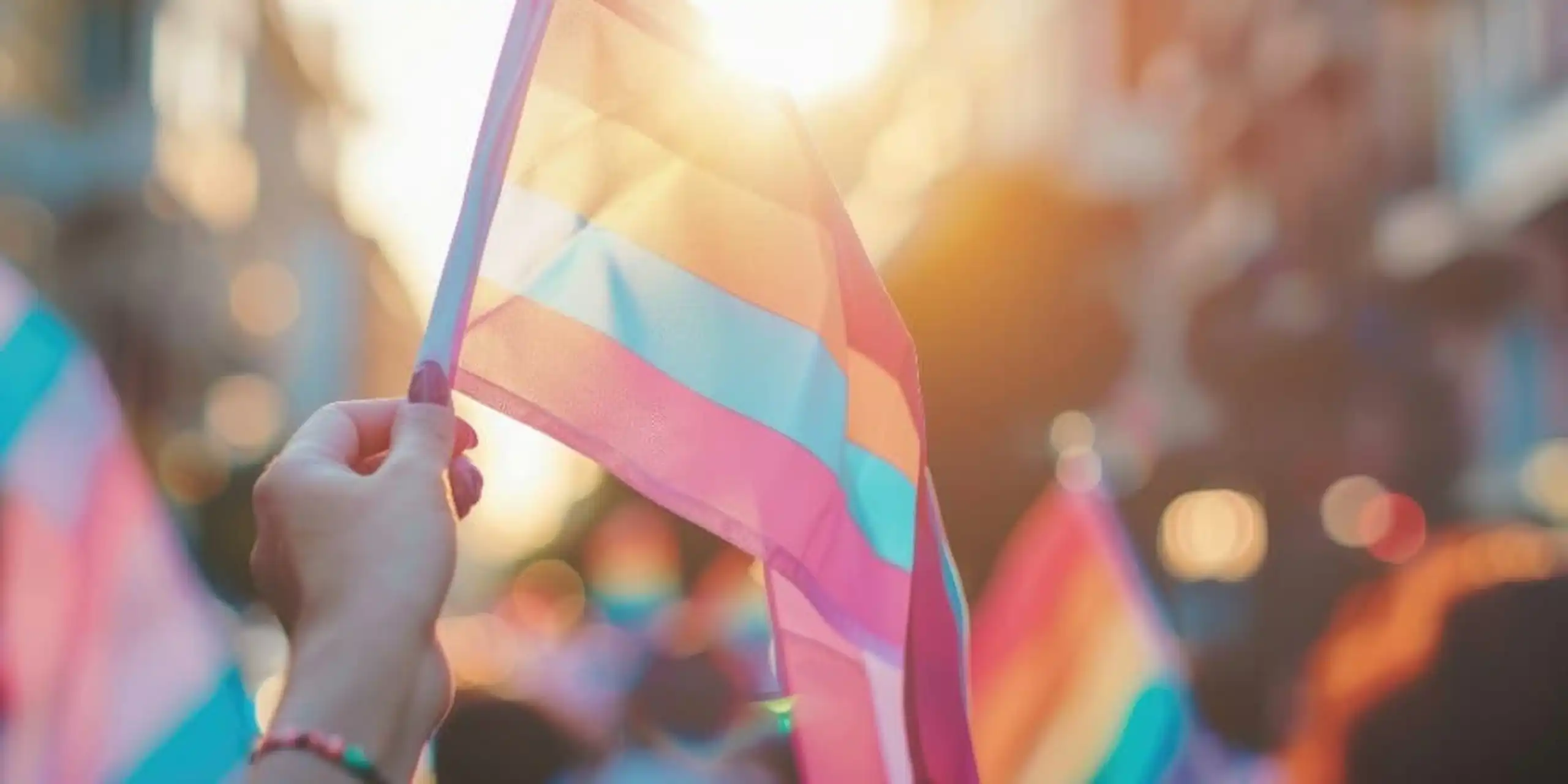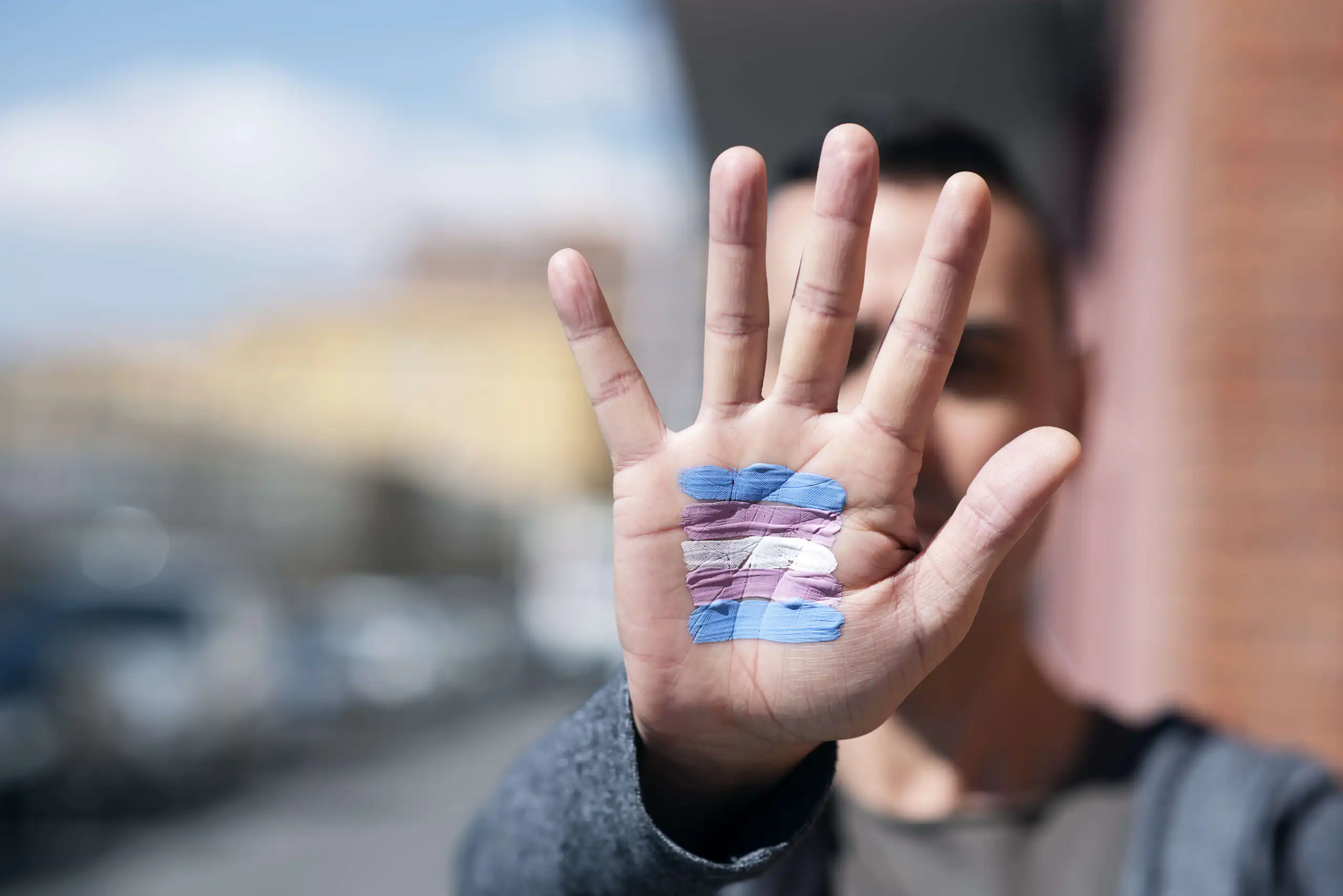Latest
Transgender Awareness Week

In recent years, the topic of gender identity has been a reoccurring topic of discussion, and the transgender community has gained extensive visibility across the globe. Despite this, there are still significant misconceptions and biases around the transgender community. There is still a long way to go to develop genuine and widespread acceptance and understanding.
Celebrated every year, Transgender Awareness Week takes place from 13th until 19th November 2024, leading up to the Transgender Day of Remembrance, and highlighting the importance of understanding and accepting the transgender community.
What is Transgender Awareness Week?
Transgender Awareness Week aims to raise understanding and awareness for the transgender community and the struggles and discrimination they still face today. The week is more than a movement, it is a call to action for people to build genuine understanding, acceptance, empathy, and respect towards transgender people and their community. It highlights the struggles, prejudice, bias, and discrimination that many transgender people face daily. Raising awareness, understanding, and keeping ourselves accountable means understanding the realities of life as a trans person, advocating for equality, and challenging harmful stereotypes.
Transgender Awareness Week emphasises the work that has already been achieved, but it also means realising and accepting that there is still a long way to go to totally eliminate transgender and non-binary inequality and discrimination. It’s about celebrating diversity and equality for all, and making sure everyone feels heard and accepted, regardless of their gender identity.
There have been many notable acts and events that have led the way for Transgender Awareness Week to take place, such as the first British trans woman, Roberta Cowell, in 1954, or Sweden legalising gender reassignment in 1972. In 2009, International Transgender Day of Visibility was formed to celebrate the transgender community and raise awareness. In the same year, another week-long event was created by a transgender activist, Rachel Crandall Crocker, dedicated to celebrating the lives of living transgender people. This was the start of Transgender Awareness Week.
What is Transgender Day of Remembrance?
In 1999, International Transgender Day of Remembrance was established to remember the victims of anti-transgender hate crimes. International Transgender Day of Remembrance is celebrated annually on November 20th and honours the memory of the transgender people whose lives were lost in acts of anti-transgender violence that year.
It sheds light on transgender people who have died or taken their lives because of transphobia and encourages allies to stand up in the face of discrimination and advocacy around the prejudice and violence that affects the transgender community.

How can you become an Ally?
1. Educate yourself Transgender Awareness Week encourages people to learn about the transgender community and emphasises the importance of understanding the issues transgender people face. Do research to challenge any unconscious stereotypes, biases, or stigmas you may have, and explore the achievements of the transgender community to fully immerse yourself and become an ally.
2. Watch definitions and language Misgendering or using inappropriate language can be distressing and draining for transgender people. If a transgender person asks you to call them a specific name or pronoun, you should respect their choice. Without this respect, you could discriminate against them.
Try using gender-neutral and inclusive language, such as “everyone” or “they.” You can use Stonewall’s glossary of terms to guide you through appropriate language.
3. Listen to transgender people It’s important to listen to transgender people as it makes them feel valued and accepted by you. The simple act of listening openly and honestly will generate confidence from the transgender community. The most effective way to understand the transgender community and the experiences they have been through is by actively listening to transgender people and allowing them to share their story without interruption.
4. Challenge transphobia and bias As an ally, it is essential to challenge transphobia when you see or hear it, including misgendering, jokes, or inappropriate language. Dealing with transphobia is painful and exhausting, so it’s fundamental to stand up and challenge transphobia and trans discrimination whenever necessary.
Transphobia Hate Incidents
The transgender community deserve respect and acceptance. Transphobic hate incidents and violence, such as hate crimes, discrimination, and dealing with transphobia, should not be tolerated or accepted by anyone.
Transphobia hate incidents are hateful acts that are experienced by transgender people based on their gender identity. Transphobic hate incidents may include physical violence, damage to property, bullying, harassment, threatening behaviour, online abuse, manipulation, mocking, and hate speech.
Shockingly, Stop Hate UK reported that 2630 victims of transgender hate crimes were reported to the police within a year. That is almost 8 people a day who are coping with transphobic hate crimes. Stop Hate UK also stated that the transgender community is more likely to experience threats of physical or sexual harassment or violence compared with the rest of the LGBT+ community.
It’s important to note that a person can be a victim of a transphobic hate incident even if you are not transgender. If you do not identify as transgender and someone believes you are trans, this can be considered a transphobic hate incident.
How are Transgender people protected in Law?
In the UK, we have the Equality Act, which protects people with certain characteristics that are at risk of discrimination. Established on the 1st of October 2010, the Equality Act aims to safeguard personal characteristics by law to combat discrimination, prejudice, and bias. If a transgender person has proposed, started, or completed a process to change sex, they are considered a protected characteristic in the Equality Act and therefore have some protection by the law.
The Equality Act is a piece of legislation that describes personal characteristics that are protected by the law and defines unlawful behaviour that could be considered harmful to someone with the protected characteristics.
Wellbeing Workshops, Webinars, and Courses
At HA | Wisdom Wellbeing, we offer comprehensive and informative workshops, webinars, webcasts, and courses that focus on different aspects of workplace and personal wellbeing to boost mental health.
HA | Wisdom Wellbeing delivers an abundance of wellbeing workshops and webinars that suit a wide range of needs, such as stress management, coping with change, aggression and de-escalation, neurodiversity, domestic abuse awareness, and many more.
Our Equality and Diversity training will dive into transgender awareness, providing your people with the correct tools and insightful information to better understand the transgender community and support your transgender friends or colleagues.
According to Mind, people who identify as part of the LGBTQ+ tend to be more likely to experience mental health issues because of the likelihood of experiencing discrimination and prejudice. With this in mind, our interactive courses provide useful information around mental health, encourages self-care, and offers the tools to support individuals that may be dealing with the impacts of discrimination or transphobic hate incidents.
While people who are part of the LGBTQ+ people are more likely to suffer with mental health conditions because of the increased experience with discrimination. It is important to note that not everyone that identifies as part of the LGBTQ+ community will not develop a mental health issue or condition.
Conclusion
The transgender community deserves respect, acceptance, dignity, and support. It can be daunting to come out as transgender because of the hate, discrimination, and prejudice often subjected to gender-diverse people. Transgender Awareness Week serves as a reminder of the continuing struggles and discrimination the community still face today. It provides the necessary push to reflect on how we can better support transgender people and highlights the importance of viability, acceptance, and challenging transgender hate.
It is a time to remember to educate ourselves to understand those struggles, how we can support the people around us who are part of the transgender community and assist in combatting transgender hate.
As the week draws closer, let Transgender week inspire you to promote positive changes and acceptance for all gender-diverse people.
If you are struggling with any gender-based discrimination or hate and need mental health support, HA | Wisdom Wellbeing offers a 24/7 helpline where you can contact a qualified counsellor who will offer you a safe space to talk and professional advice.

HA | Wisdom Wellbeing
HA | Wisdom Wellbeing is the UK and Ireland’s leading EAP provider. Specialising in topics such as mental health and wellbeing, they produce insightful articles on how employees can look after their mental health, as well as how employers and business owners can support their people and organisation. They also provide articles directly from their counsellors to offer expertise from a clinical perspective. HA | Wisdom Wellbeing also writes articles for students at college and university level, who may be interested in improving and maintaining their mental wellbeing.
Support your employees with an EAP
With an Employee Assistance Programme (EAP) from HA | Wisdom Wellbeing, we can offer you practical advice and support when it comes to dealing with workplace stress and anxiety issues.
Our EAP service provides guidance and supports your employees with their mental health in the workplace and at home. We can help you create a safe, productive workspace that supports all.







